Dispatch #082421: Writing on non-writing (or the things I didn’t publish)
Plus, a sunset
This is a public post from the Dispatches franchise. To read the last of its kind, click here.
The unrealized olive
I have been writing in a notebook or a google doc or straight into the back end of Substack every day from Turkey but for the past two weeks have been toiling exclusively with this one stupid essay about an olive that I bit into after it fell from a tree.
It (the olive) was hard and very bitter — not ripe yet — and I couldn’t get over the inevitability that this had to be a metaphor for something big and existential. I’ve presented myself with a million options: biting into the olive as a metaphor for taking a risk, for showing up before you’re ready, for the consequence — presenting your own bitter hardness, or keeping it suppressed it so diligently that the bitter hardness pops up everywhere else, even when it’s not there.
When I think I got it, I wake up the next day, or revisit the excerpt some hour later and cringe because it’s not right. Why am I trying so hard to see something that is either not there at all or simply not there yet?
It’s another olive still unripe that I keep biting into, isn’t it?
Not ripe yet
On the helpful side, I think I finally know what I mean when I say it’s not right yet: I don’t believe it yet. It’s either incomplete or not ripe. Which is fine — but sometimes I resist and tilt my head and squint my eyes and bend my brain into shapes until it starts to make sense from some uncomfortable angle but then an hour goes by or the day goes by and it’s still unbelievable.
That feeling is of defeated disappointment. The death of a story I’m try to tell myself while I stand on-site next to it. Have you ever felt this?
Working through something on the page is annoying as hell, the tone of my voice sing songs dead truths over and over until I surrender at war, resist the bottleneck and move the fuck on. Not ripe yet.
Dying truths
“For these deaths, sit shiva, absolutely, then get up when it’s time.”
That is the last line of an essay I wrote about broken glass and have recently, also, been toiling with. Mostly because I broke a shelf in the fridge by pulling a bowl of figs off of it. The glass shelf shattered over the cheese and the fish that were on the shelf under it. They seemed not to care at all and came out completely unscathed.
Family knots
Meanwhile, I don’t know if this theme of dead truths is being exacerbated by the past 20 days, in which I have been away, living with my parents, but I keep noticing that if I don’t pay attention it’s like I start to melt into a 19-year old, which is how old I was the last time I lived with my parents.
It’s an impossibly uncomfortable but so very comfortable position to assume when I’m here with my kids but am also their kids; why does the melting happen?
It’s like I hold myself up against who I was the last time I lived here with them. Or maybe not who I was, but who they thought I was, or who they wanted me to be.
No, no. I got it. It’s who I was as a response — in the flattering ways and rebellious ways — to who I thought my parents wanted me to be.
Turns out they’re perfectly fine with the current version which turns the million dollar q right back over to me: am I?
It’s so hard to divorce our conceptions of self from those of the people who raised us and I think it’s because they’re the first framework against which we self measure. The first ceiling we try to break through.
This dynamic seem kind of like grief or shame or joy or any other sensation that comes back alive just when you think it’s dead. It’s like they (the sensations) want to confirm their existence — fluctuating sometimes up, sometimes down, growing salient or fading but never completely disappeared.
And thank God for that because they’re parts of us like cells. Accepting them as there doesn’t have to mean bombing them with sugar — indulging in them completely.
Unless, I guess, you want to.
On indulgence: joy dressing
This is the most recent thing I tried to write about but couldn’t get right. Originally I wondered whether pursuing joy is indulgent even though I know the answer — that it depends on what you want to believe. It can be if you want it to be but also doesn’t have to be.
Pursuit is a tricky topic because when you look for anything, it can often seem like finding it is the endpoint. Transaction complete, mission accomplished, let’s move on to the next one now!
But with something like joy, this doesn’t quite work, because it’s a means, not really an end.
More of a filter than a permanent state. The destination-less journey, I guess.
Sounds trite when I say it, doesn’t it?
This is why I like talking through clothes — so let me try to put it like this: I wake up in the morning and scroll through my phone, wondering what the weather is like and I get the answer but don’t get the answer because the sidebar news wipes me out so I go to the next app and it’s no better there, then the one after that which might be the worst, and by the end, I resolve I’ll just stay in bed because what’s the point of getting up anyway? And I’ve wondered this before when I had my heart smashed or found out he had cancer or lost my first pregnancy and in all those instances and in this one too, the only point I could muster is getting dressed.
But it’s not really about getting dressed. I either moved on or we got back together, my dad went into remission, I gave birth to twins. Who knows what of this could have happened if I didn’t find a reason to get out of bed.
The outfit,
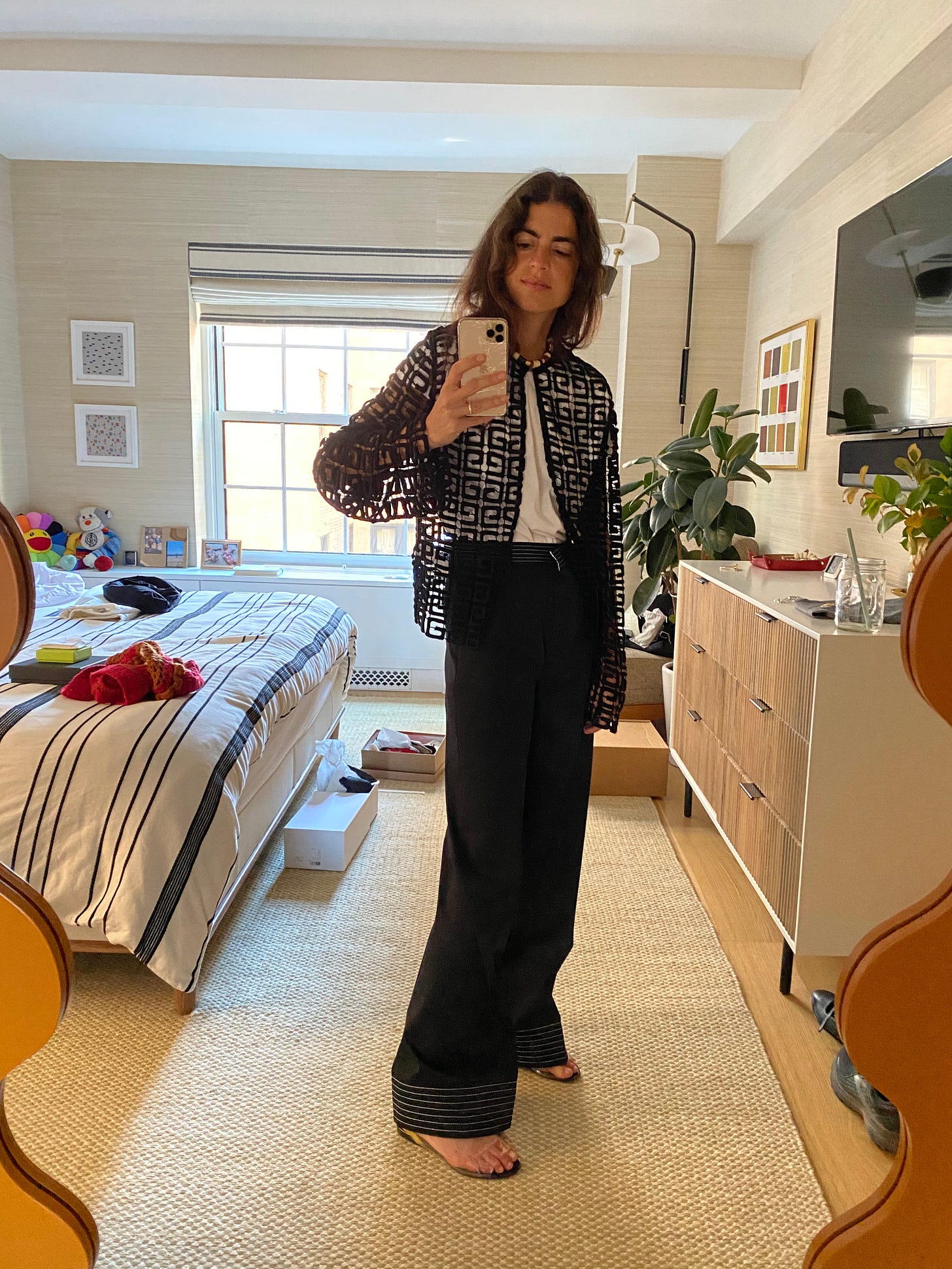
or sunset,
or relieving book passage
doesn’t make a problem go away, but it does help you — or me, I should say — get up and do something different.
That becomes something else
Then another thing else
Once more
Then on again.
It might be time for me to get home.
A finale sunset
Nature’s first green is gold,
Her hardest hue to hold.
Her early leaf’s a flower;
But only so an hour.
Then leaf subsides to leaf.
So Eden sank to grief,
So dawn goes down to day.
Nothing gold can stay. —Robert Frost
Every day around 4 p.m. the harsh light starts to dull and a golden gloss begins its ritual possession of the sun’s glare. The earth doesn’t actually become gold until hours later -- around 7 p.m., which is precisely when I was sitting in the backseat of my dad’s car again. He was taking me and my brothers and my mom and my partner to the top of a hill where we would watch the sun, a fiery sphere by now, sink into the mountains far off in the distance behind the Aegean sea. At the top of this hill on the southwest coast of Turkey, we’d stand where my father stood many times before as a citizen of this place now foreign.
In the car, we passed boundaries. Short stone walls built like fortress gates with small wooden doors peeking out as passageways and greenery spilling out from over the gates.
There are these pink flowers and when the gold light hits them, it hits me too. I like to think that we share a mutual intoxication of the overwhelming possibility that this moment could be enough.
Every half a mile or so, in the middle of nowhere, or center of somewhere, some other feature triggers the possibility: prickly pear growing from behind industrial machinery that looks just as gorgeous in the glow; planters imagined as plastic swans for sale; a white wall covered in carpets.
More planters imagined as used olive buckets, these full with leafy bushes that catch the light dimming to say this last green is gold too.
A family of three -- one woman, two boys -- passes by, moving down the street in bathing suits, towels wrapped like coverups over their bottom halves as they walk, backs turned away from the dusk towards night. I wore a gold dress that caught the gold light and tried maniacally to capture the scene. As if seizing the image would make it stay, well knowing nothing gold ever does.
When we got to the top of the hill, the sky's blaze was burning off into a fierce pink tint and the sun was moving, slowly at first but then all at once until it finally melted into the mountains.
To think that actually, we were the ones moving, that the sun would stay where it was, gave me a feeling of calm. I took refuge in the inevitable sun that would rise the same way it set tomorrow.
So it goes nothing gold can stay, but it always comes back the next day.


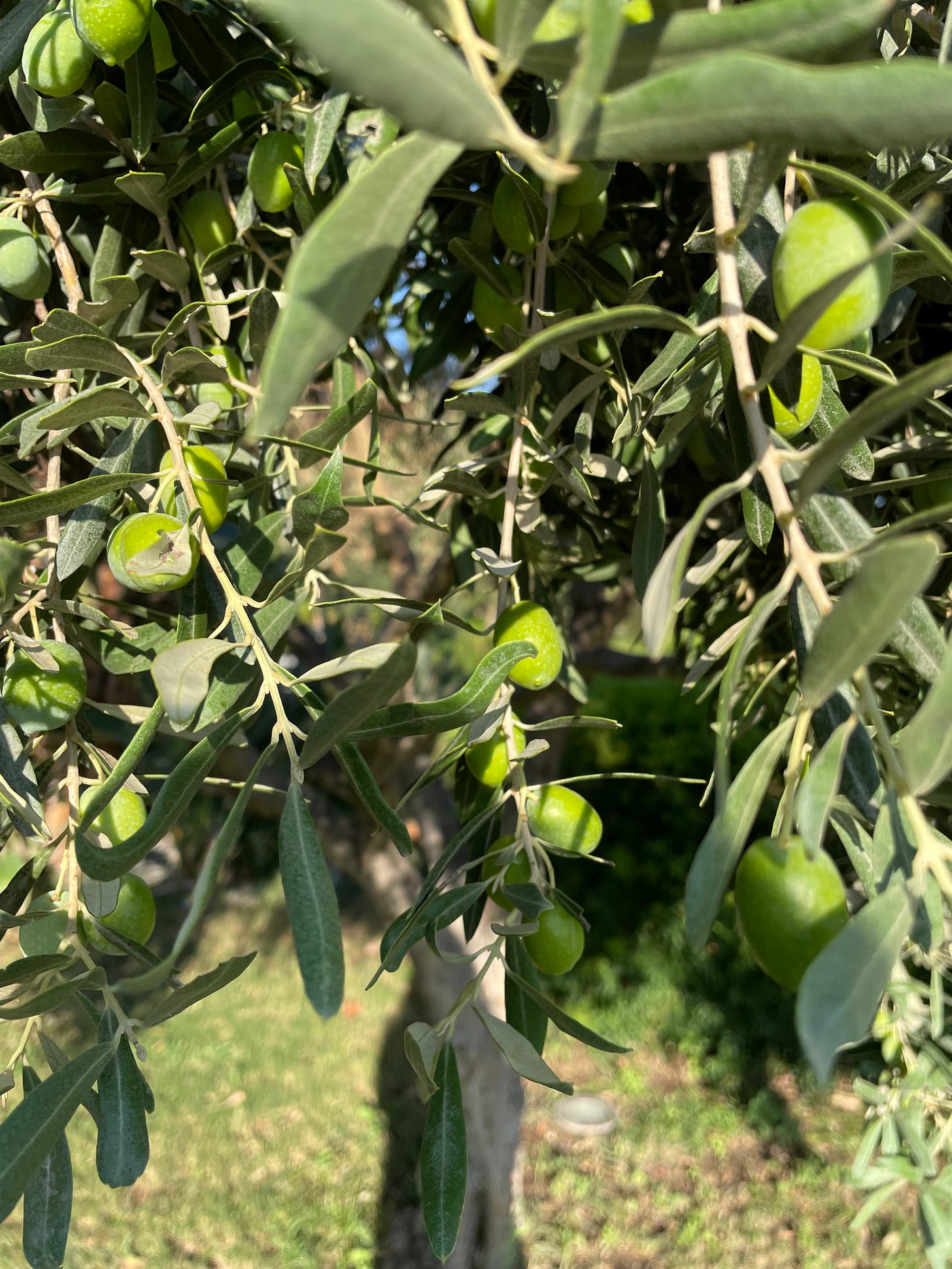
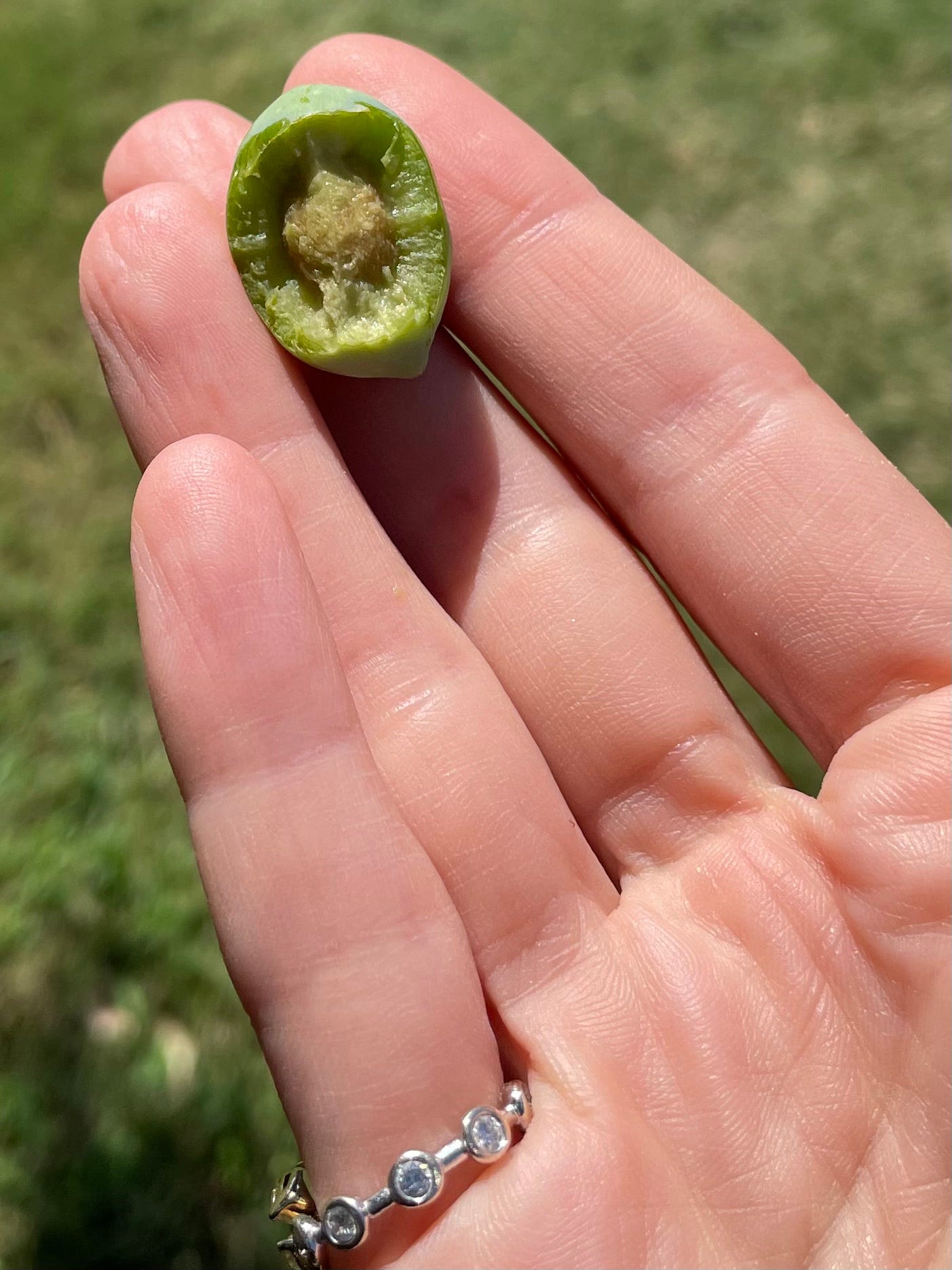
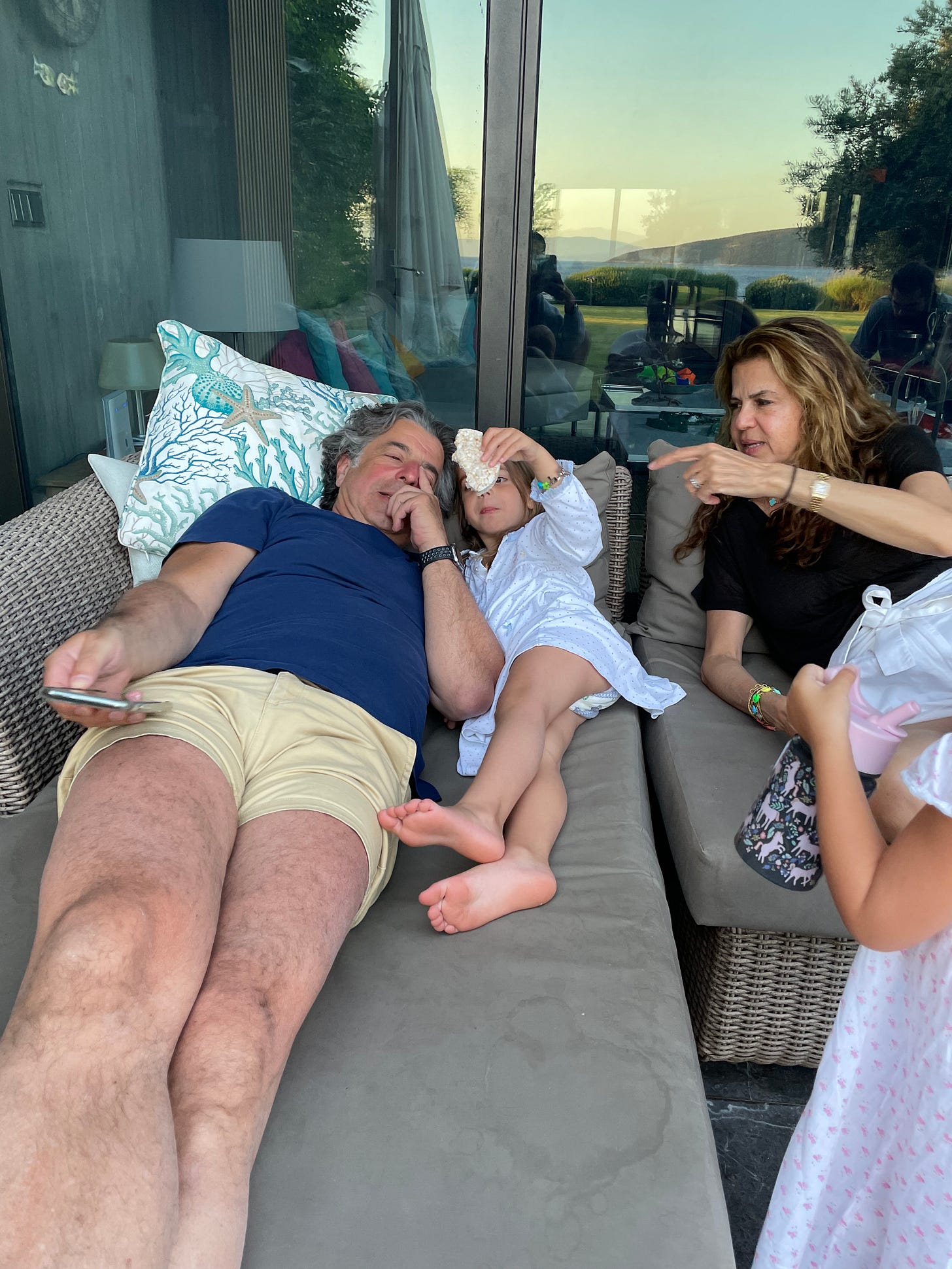
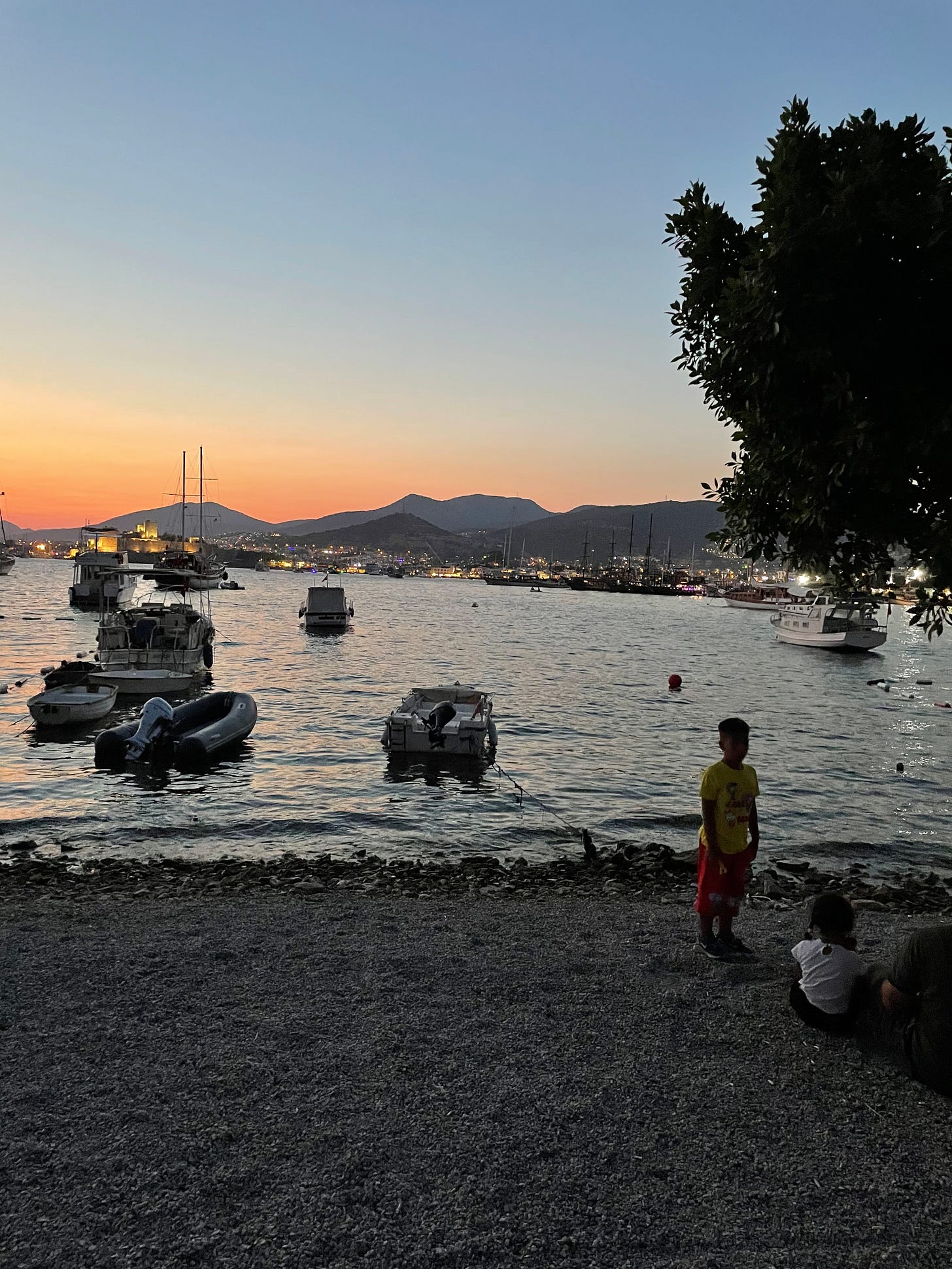
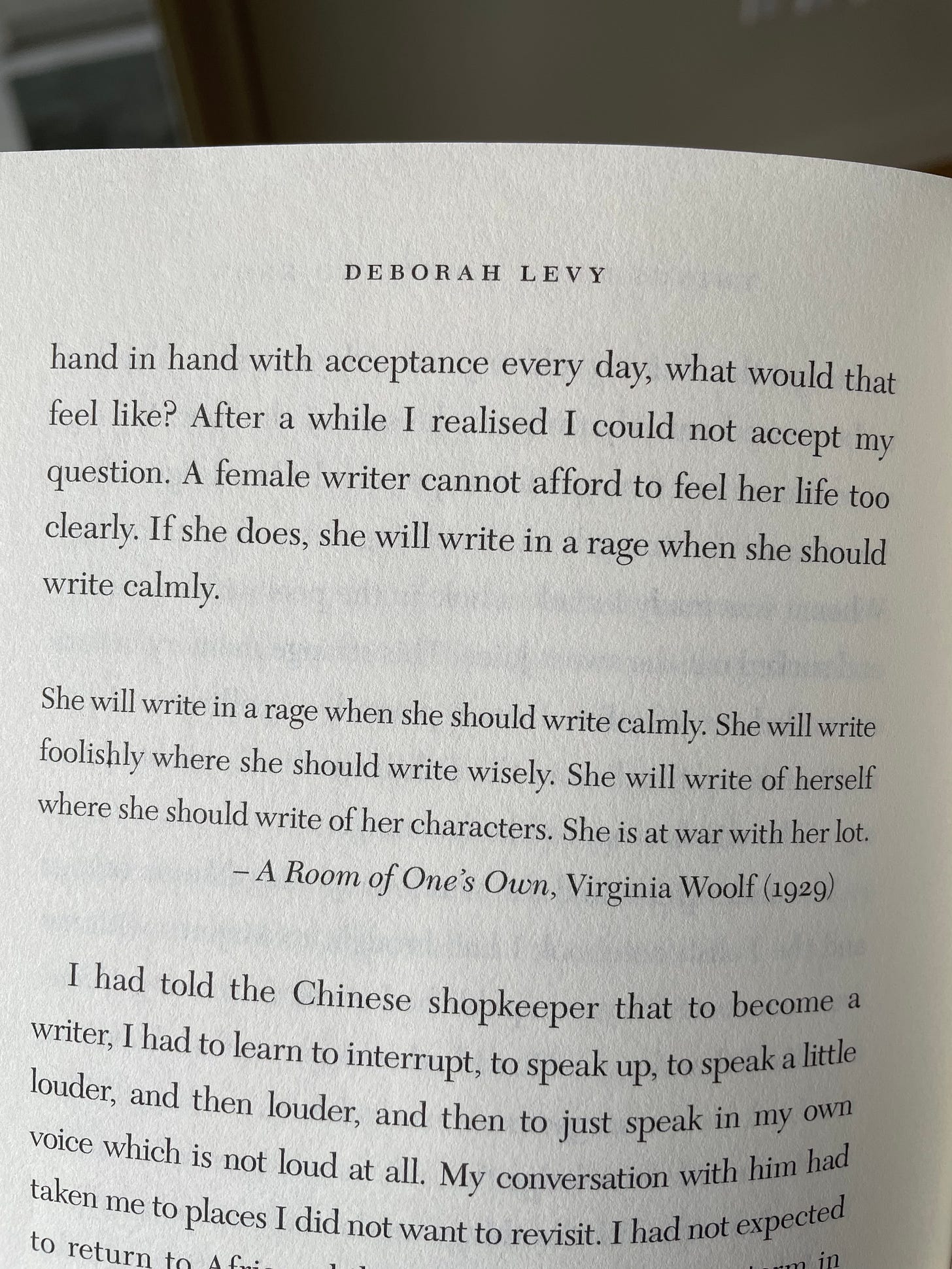
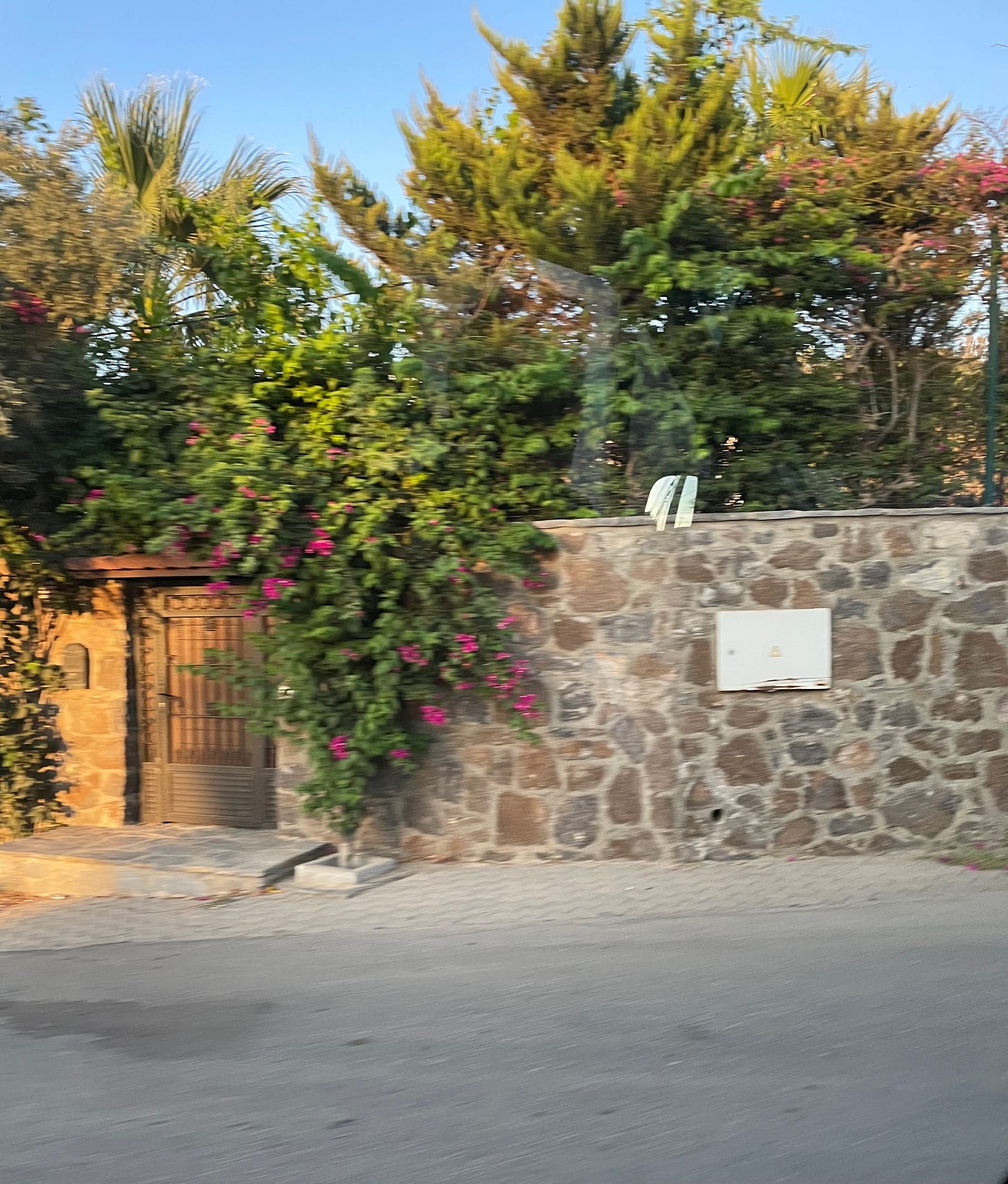
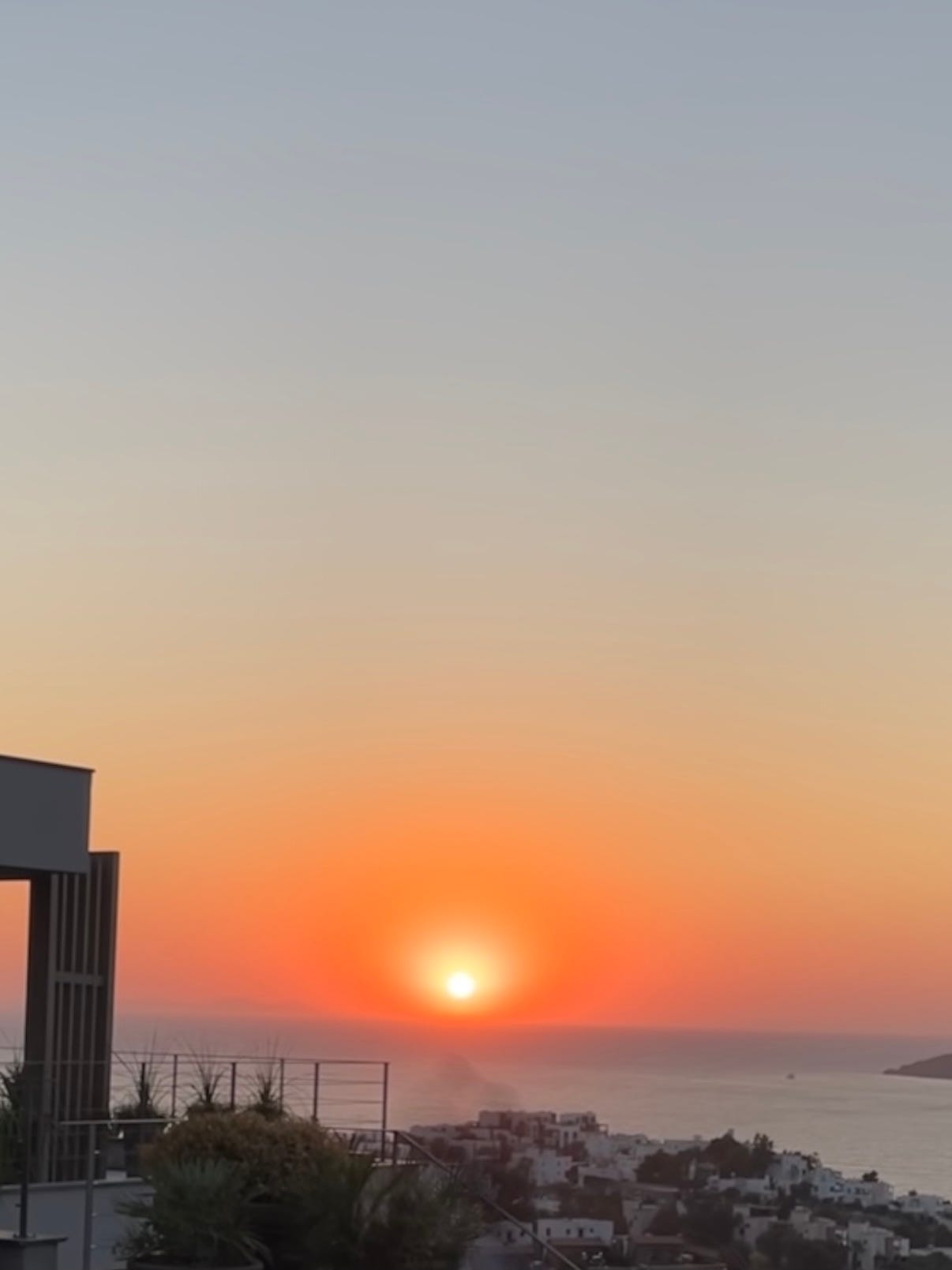
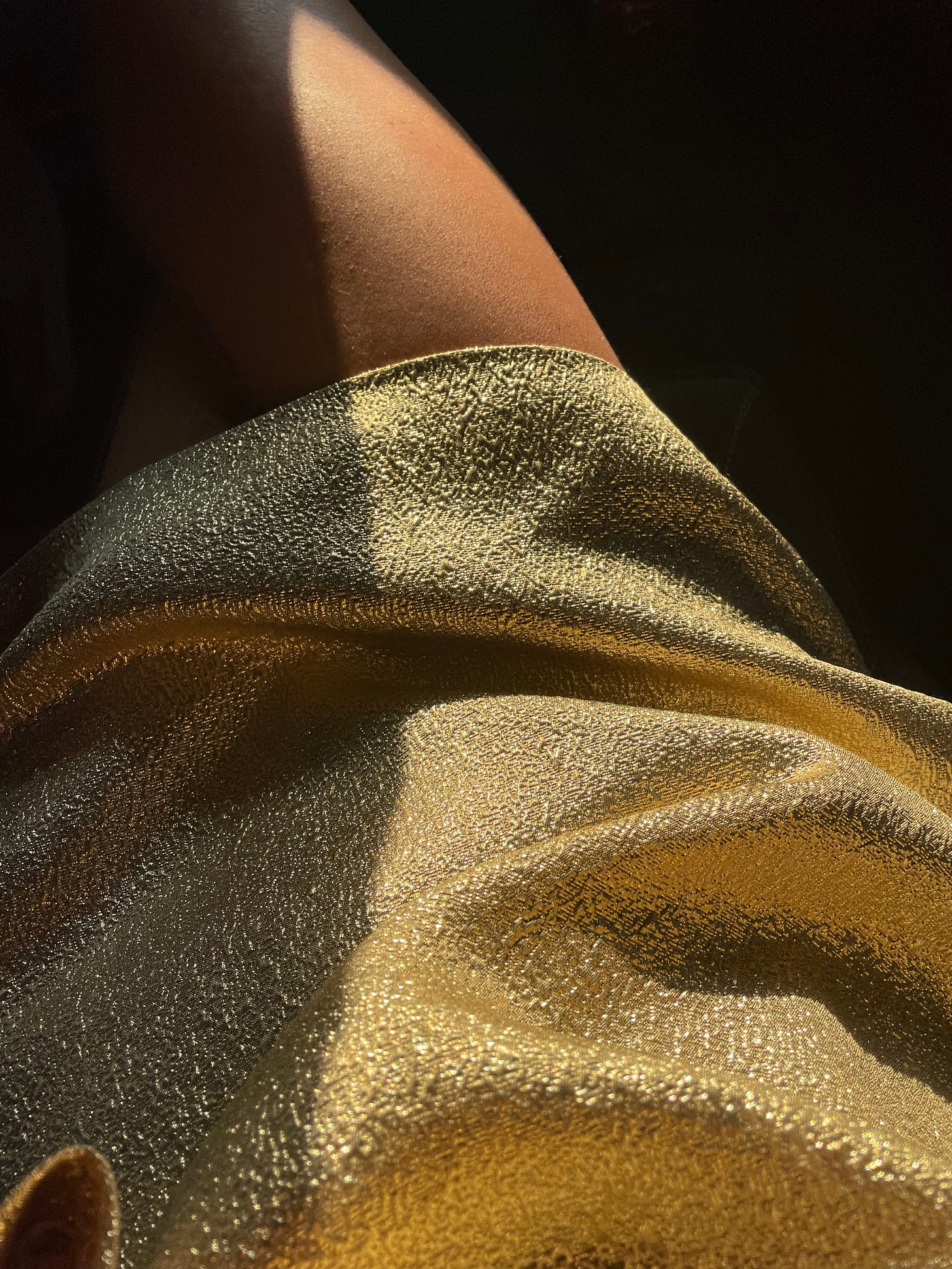
I find this newsletter overwhelming.... Everything you write is so true. When the doctors detoxed my leukemia two years ago.... I refused to have a nurse in the house to do my daily blood work. My only motivation? Trying to get up to go to the hospital lab with a new dress and fancy shoes. I almost died but that's what I was thinking about: my fashion. And I think that motivation helped me to heal (along with the chemotherapy of course). Fashion is not futile.... really not.
The very best ending. You filled me with so much joy at the end. You rewrote Frosts beautiful but tragic ending. So so good. You're golden.